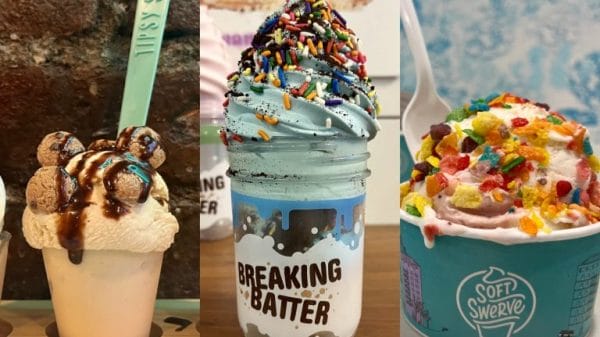Every social media platform is flooded with images of people with perfect clothes, perfect bodies, perfect skin, and perfect lives. Measuring yourself up to the beauty standards set by social media is a recipe for low confidence and poor self-esteem, and possibly for mental health issues such as eating disorders and body dysmorphia. In a new report by the Dove Self-Esteem Project, where they surveyed more than 1,000 girls aged 10-17, 1 in 2 girls said that toxic beauty and fitness advice on social media caused them to have low self-esteem. 90% of the girls surveyed said they followed at least one social media account that made them feel less beautiful. Clearly, the people you follow and the advice you see online have a huge impact on how you perceive your own appearance and how you feel about yourself.
Whether you’re on Instagram, Facebook, TikTok, or Twitter, there’s an abundance of toxic beauty and fitness advice. Toxic beauty advice normalizes unrealistic and narrowly defined beauty standards, promotes potentially harmful dieting or cosmetic practices, and suggests that the key to building self-esteem is physical ‘perfection’. This advice can come in the form of images, videos, or captions on posts. One of the most common sources of these toxic beauty standards is #fitspo accounts, which send the message that the ‘perfect’ body can be attained through diet programs, meal replacement shakes, laxative teas, supplements, or tailored workout plans.
An influencer might show off their toned abs in order to ‘sell’ their particular diet or exercise plan or promote a brand they have been sponsored by, even if they never used anything from that brand. The products and plans which are promoted are often very restrictive and not achievable for the average person who is balancing work or school with other duties. Fitness influencers commonly edit their images or pose in a way to look thinner and more toned, which creates the belief that achieving that exact body type requires buying their products or following the diet they did. Others may promote and normalize cosmetic procedures that can be expensive and potentially dangerous, like lip fillers, Botox, gluteoplasty (butt lift), breast augmentation, and rhinoplasty (nose job).

Makeup and fashion influencers are no better. Beauty gurus also heavily edit their pictures by using filters, resulting in them portraying an unrealistic standard of beauty. Filters can do anything from giving a facelift to skin-whitening. They can make your nose thinner, and your dark circles disappear, and it will basically look like your skin has no pores. It skews the idea of what ‘normal’ skin is supposed to look like, whilst claiming that certain cosmetic products can help anyone to achieve this perfect look. Fashion accounts mostly showcase clothes on straight-size, white women, and lack diversity in body size, shape, and skin color.

Seeing all of these ‘perfect’ people online leads many to compare themselves and feel like they aren’t good enough just because they do not look like any of the influencers they follow. They may try to follow a promoted diet or exercise plan, and buy the cosmetic products which promise flawless skin, only to find they still don’t fit the narrow idea of beauty presented online. However, the skincare brand Dove has launched its #DetoxYourFeed initiative. The goal is to encourage people to remove toxic beauty and fitness advice from their social media platforms by muting or unfollowing — as well as engaging with more positive, uplifting content — in order to improve body image, eliminate harmful beauty advice, and boost self-confidence.
How to create a more positive feed
On Dove’s website, they outline simple steps to detox your feed from any toxic beauty or fitness content. First of all, they suggest that you familiarise yourself with the safety functions that enable you to block, report and unfollow accounts that share toxic advice. If you are following certain beauty or fitness accounts that make you feel bad about yourself, hit the unfollow or block button! To figure out if an account or post is promoting toxic beauty standards or advice, go through this checklist:
- What’s being sold in this post?
- Is this person giving this advice because it’s a paid ad?
- Does this post make unrealistic promises about what will happen if you buy this product?
- Are the people featured on the account all of a certain body shape or size, skin color, and lack normal physical blemishes?
Spend 10-minutes scrolling through your feed, thinking about how certain posts make you feel. Consider which accounts make you feel uplifted or inspired, and which ones negatively affect your self-esteem or body confidence. Block those which cause you to feel negative about yourself or those to which you compare yourself.
Once you’ve detoxed your feed, fill it with authentic, unfiltered, diverse, and inclusive accounts such as @itsmekellieb, @meganjaynecrabbe, @scarrednotscared, @denisebidot, @candicehuffine, and @thesabrinakarlsson.
No one deserves to feel that they aren’t good enough just because they don’t match up to the digitally enhanced personas influencers have online. Blocking out the toxic beauty and fitness accounts that are making you dislike the way you look and are is the best form of self-care and self-love you can give yourself. Scrolling through Instagram is meant to be fun, not detrimental to how you feel about your own beauty.













